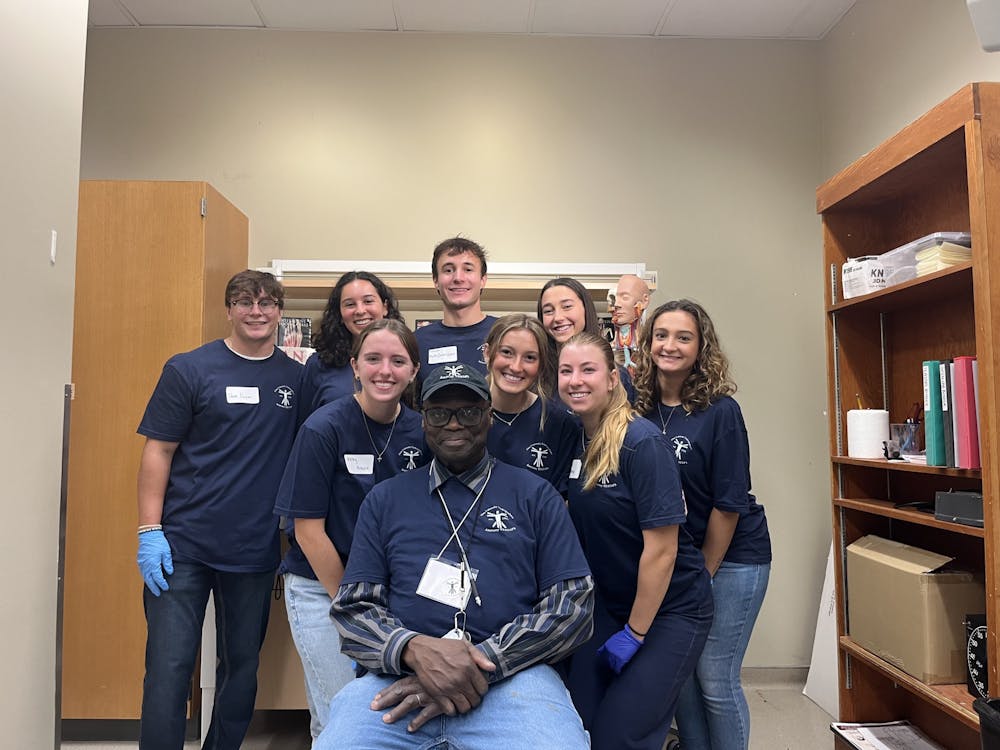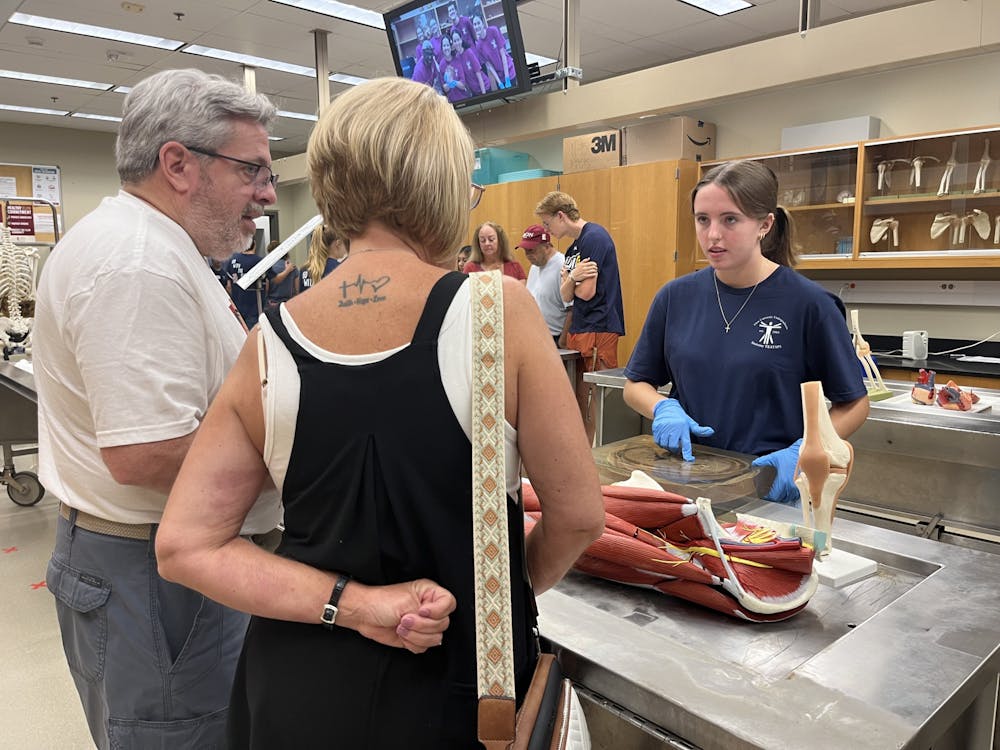Matthew Clark, professor of biology, said he always had a dream to teach undergraduate students human anatomy. Before Clark was at Elon, he was at East Carolina University, one of his classmates died because of a complication with her brain — influencing him to want to give back to others.
“I believed there was a place that I could go that would give me the opportunity to deposit into other students what I had learned at the medical school,” Clark said. “But I didn't know where that was, but I kept believing that soon or later, the doors would come open for that place.”
Elon became that place for Clark after he got a call from a now retired professor looking to talk to him about a job. Clark said working at Elon seemed like it was meant to be, as he and his wife had just been looking at a map and randomly stumbled upon Elon the week before.
“Eventually, I took a job here at Elon, and as I did, the miracles of this passion that I had began to unfold, the opportunity to build something that was not anywhere else in the country,” Clark said.
Now, under Clark’s leadership, the Elon Anatomy Teaching Assistant Program Students has close to 30 students. In 1999, Clark started the program with five students, and had to show Elon that this was something that could work after the university initially was not onboard.
“‘You're asking for something that's unrealistic,’” Clark said. “I said, ‘Well, fine, I'm going to still make it happen.’”
This year is the second year the program had permission from Elon to invite families to see the students’ work in the lab over Family Weekend. Clark said showing families the work students do every day has been part of his exciting journey at Elon.
During the open house Sept. 28, parents could come by the lab and see a human brain, spinal cord and heart; tools for dissections; and models of bones and parts of the body. The human brain on display was one students had used in a craniotomy a couple of weeks ago, removing the brain from a donor. Elon’s anatomy lab uses human donors, through Elon’s Anatomical Gift Program, allowing students and professors to study human bodies after death.
Some families were a bit uneasy seeing how much access Elon gives undergraduate students, as Elon is the only school in the country that allows undergraduate students this much hands-on experience, Clark said.
“I knew that was going to be positive,” Clark said. “It was just a matter of convincing the university to let us.”

The Elon Anatomy Teaching Assistant Program Students and Matthew Clark, professor of biology, after showing families what the work they do in their anatomy lab looks like.
Senior Lilly Arora is in TEATAPS and has been for three and a half years so far. After taking anatomy her freshman year, she said she loves combining her love of working with the anatomy program and teaching others.
“I came in with the intent of going into physical therapy,” Arora said. “But after going through this program, I knew I needed to do more.”
Ginny Krause and her husband John Krause came to see their daughter junior Abby Krause in action. Ginny said when she heard about the program at Elon, she thought it was an amazing experience.
“I am a nurse practitioner,” Ginny said. “I work in the medical field, and how I would have loved to have this experience. I mean, you learn, but to actually, physically work on the body and see and be able to do it is, to me, amazing, and just the experience that she'll take from this, whether she stays in the medical field or not is phenomenal.”
John said they spoke with Clark yesterday and were impressed with his leadership and passion and how the program has evolved over the years.
“We're so thankful that our daughter came here to experience all this,” John said. “It's phenomenal.”
Clark said he is proud of the work of his students and the access Elon allows them to have. After 20 years of this program, each semester Clark makes sure to remember where it all began, he said.
“At the end of every semester when we're done, I have a quiet moment and I say to the spirit of my classmate, ‘Thank you for being my classmate, this semester is dedicated to you,’” Clark said.


